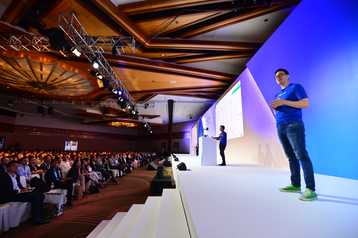Google has opened a center in Beijing, China, dedicated to artificial intelligence research and led by two Google Cloud AI heads.
Called the Google AI China Center, the facility is the company’s first such center in Asia, joining similar projects in New York, Toronto, Montreal, London and Zürich.
The center will be led by Dr. Jia Li, head of research and development at Google Cloud AI, and Fei-Fei Li, chief scientist for AI/ML at Google Cloud, who were hired last year to run the cloud vendor’s machine learning division.
America’s Baidu
“Since becoming a professor 12 years ago and joining Google a year ago, I’ve had the good fortune to work with many talented Chinese engineers, researchers and technologists,” Fei-Fei Li said in a blog post.
“China is home to many of the world’s top experts in artificial intelligence (AI) and machine learning. All three winning teams of the ImageNet Challenge in the past three years have been largely composed of Chinese researchers. Chinese authors contributed 43 percent of all content in the top 100 AI journals in 2015.”
The Chinese government has made AI a national priority, and is reportedly preparing a multibillion-dollar investment initiative to support “moonshot” projects, start-ups and scientific research into artificial intelligence.
This aggressive push to become the world leader in AI by 2030 is thought to have been inspired by Google. In 2016, an algorithm created by Google’s subsidiary DeepMind defeated South Korean Go champion Lee Se-dol, and world champion Ke Jie of China was defeated in May 2017.
The effect of this historic game on Chinese statesmen was akin to the effect of Sputnik on the US government, unnamed academics involved with the AI initiative told The New York Times.
But Google has a troubled relationship with China - refusing to censor search results and claiming it was subject to state-sponsored hacks, before leaving the country altogether in 2010. The company has said that it is looking to re-enter the world’s largest online market, most recently holding events promoting TensorFlow, its open source software library for machine learning.
“I believe AI and its benefits have no borders. Whether a breakthrough occurs in Silicon Valley, Beijing or anywhere else, it has the potential to make everyone’s life better for the entire world. As an AI first company, this is an important part of our collective mission. And we want to work with the best AI talent, wherever that talent is, to achieve it,” Li said.
Google did not reveal the scale of its investment in the center, but said that it had “hired some top experts” and would build the team over the coming months. The center will publish its own work, and support the AI research community by sponsoring AI conferences and workshops.
While the project will be led by Google Cloud researchers, Google is yet to open a cloud region in mainland China. Next year, it will open its first in the autonomous territory of Hong Kong.

